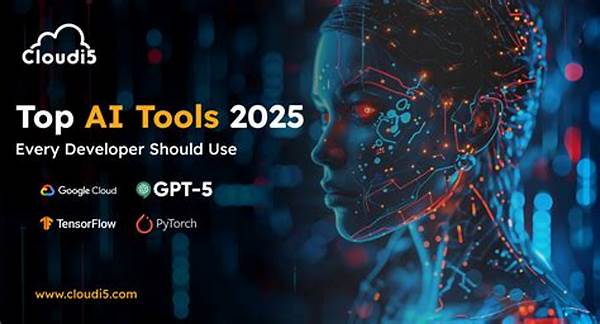Top AI Tools for 3D Modeling in 2025
Read More : How Ai Is Redefining Photography In 2025
In the ever-evolving realm of technology, 3D modeling has undergone a revolutionary transformation. As we step into 2025, the integration of artificial intelligence in 3D modeling tools is not just a trend but a necessity. These tools have empowered artists, architects, and developers, enabling them to create like never before. With AI at the helm, tasks that once took hours or even days are now executed in mere minutes, offering enhanced precision and creativity. Imagine designing intricate structures or vivid game worlds with tools that augment your capacity to think and create. That’s the power of the top AI tools for 3D modeling in 2025. These tools are reshaping the field, making it more accessible to novice users while providing seasoned professionals with unprecedented capabilities.
The AI-powered tools are not only streamlining the design process but also significantly improving outcome quality. From automating repetitive processes to offering real-time feedback and suggestions, the benefits are manifold. Users can expect to see features such as pattern recognition, error detections, and optimized rendering, which enhance the 3D modeling experience. These advancements are driving professionals across industries to adopt these AI tools, ensuring they remain competitive and efficient in their respective fields.
One cannot overlook the impact of AI on fostering creativity and innovation. By handling cumbersome and technically rigorous tasks, AI tools allow creators to focus on what truly matters – the art. This results in more innovative designs and a broader exploration of artistic concepts. With AI, limitations are shattered, and the creative potential is limitless. Thus, the top AI tools for 3D modeling in 2025 are not just tools; they are partners in creation, expanding the boundaries of what can be achieved.
In conclusion, AI-powered 3D modeling tools are not merely enablers but enhancers of human creativity and efficiency. As we continue to build the future, the demand for these tools will only grow, promising even more revolutionary features. The top AI tools for 3D modeling in 2025 are setting the Gold standard for the industry, paving the way for future innovations and transforming the way we approach 3D design and modeling.
Exploring Top AI Tools for 3D Modeling in 2025
To truly grasp the significance of these advancements, we dive deeper into what makes the top AI tools for 3D modeling in 2025 a cornerstone of modern technology.
—Discussion: The Future Landscape of 3D Modeling
As we navigate through 2025, the landscape of 3D modeling is drastically different from what it was just a few years ago. The fusion of artificial intelligence into this domain has become a game-changer, reshaping how we perceive and create models. Whether you’re a seasoned professional or a budding enthusiast, understanding the top AI tools for 3D modeling in 2025 is crucial to staying ahead in the industry. These tools are not just technological advancements; they represent a shift in how art and science intermingle to produce something extraordinary.
The transformation owes much to several key AI developments. For instance, tools now come with machine learning capabilities, allowing them to adapt and improve their functionality based on user inputs and preferences. This adaptive nature optimizes workflows and ensures that models are not just technically sound, but creatively inspiring. With AI, tasks such as texture mapping, rigging, and providing animation suggestions have been made significantly more intuitive and less time-consuming.
AI Innovations Enhancing 3D Modeling
Moreover, the incorporation of AI is opening doors previously thought to be closed. Designers can explore realms of creativity unhindered by technical constraints, as AI takes on the brunt of computational demands. In this way, the top AI tools for 3D modeling in 2025 are not just about enhancing existing processes but about redefining what’s possible. This evolution can lead to innovations that may seem almost magical, as AI offers solutions and insights that might not be immediately evident to human designers.
At the heart of this transition is the emphasis on user-centric design. The enhancements made by integrating AI are strongly focused on making tools more user-friendly. Instead of spending countless hours learning complex software, artists can jump straight into the creative process, guided by AI tools that optimize and suggest improvements along the way. This ensures that the technology is accessible and beneficial to all, irrespective of their background in 3D modeling.
Overcoming Challenges with AI-Driven 3D Modeling
While the advantages are plentiful, it’s important to acknowledge the challenges that come with AI integration. Ensuring data privacy, maintaining ethical standards in AI decision-making, and addressing biases are crucial to fully harnessing these technologies. As we embrace the top AI tools for 3D modeling in 2025, ongoing discussions about these challenges will be imperative in shaping a balanced approach to innovation.
Ultimately, the merger of AI and 3D modeling not only marks a technological revolution but also prompts a renaissance in artistic expression. With top AI tools for 3D modeling in 2025 leading the charge, we stand at the cusp of a new era—one that marries imagination with artificial intelligence to craft previously unimaginable wonders.
—Summaries of Top AI Tools for 3D Modeling in 2025
Key Features of AI Tools for 3D Modeling
The unparalleled potential these tools unlock in both creative expression and technical execution cannot be overstated.


